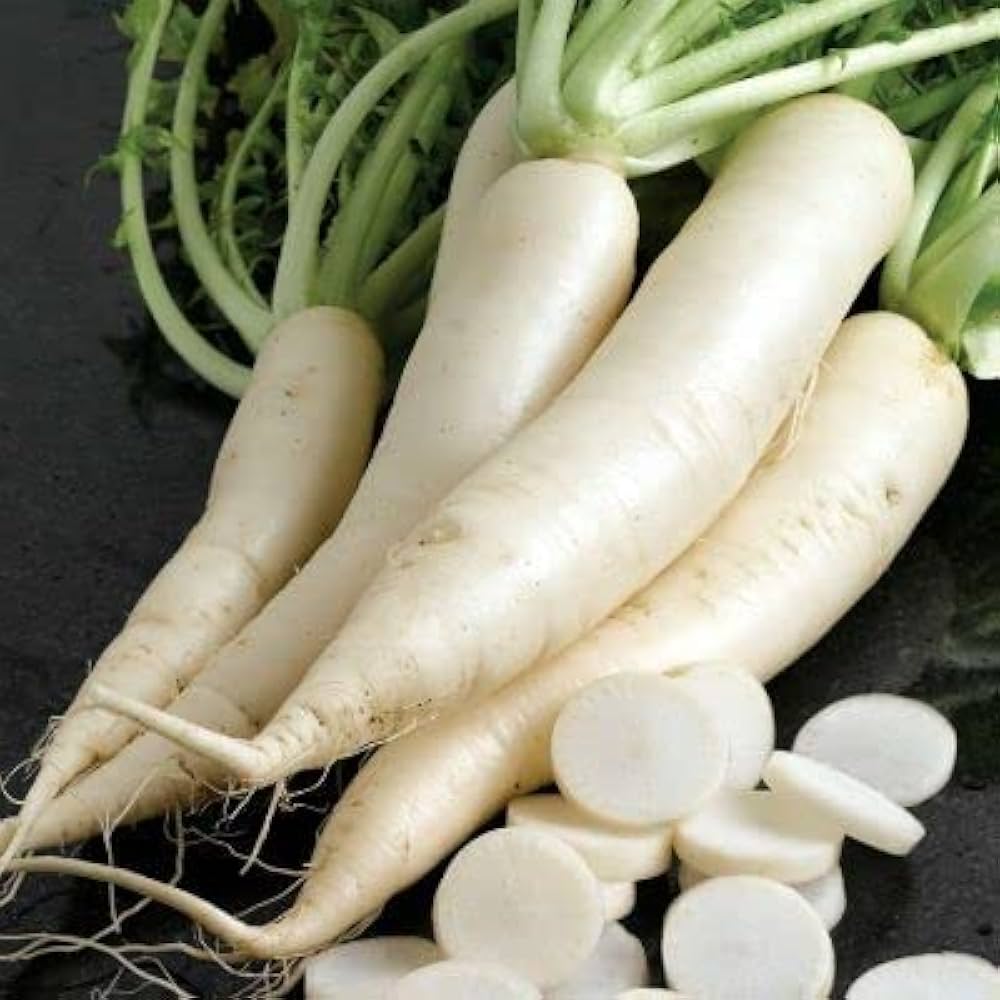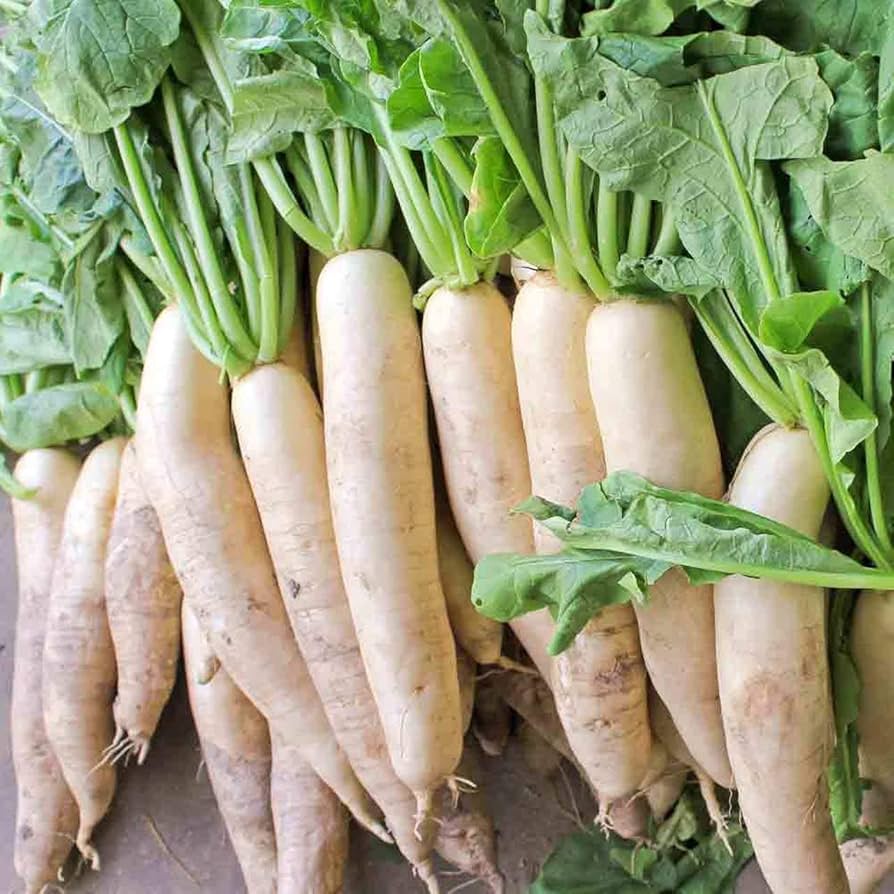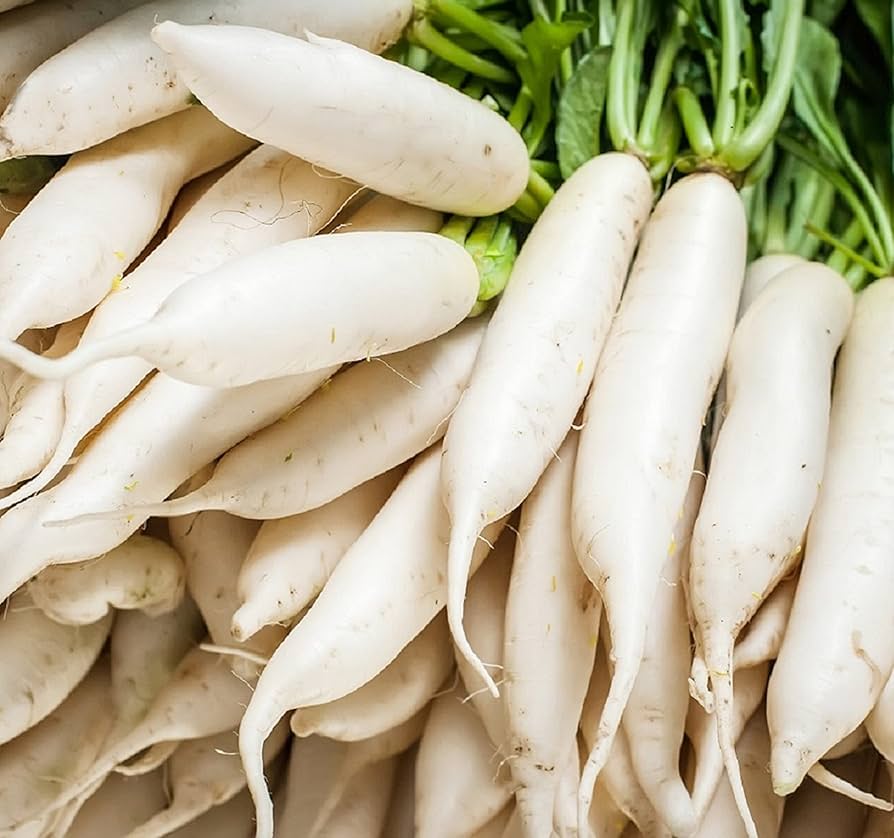Japanese Daikon Radish Raphanus Sativus Vegetable Seeds for Planting in Kitchen Garden and Raised Beds
Couldn't load pickup availability
Description
Japanese Daikon Radish Seeds
Characteristics and Uses of Japanese Daikon Radish Plants
Japanese Daikon radishes are a versatile and nutritious root vegetable known for their long, white, cylindrical shape and crisp texture. These non-GMO seeds produce radishes that can grow up to 18 inches in length, making them a popular choice in Asian cuisine. Daikon radishes have a mild flavor that becomes sweeter when cooked, and they can be enjoyed raw in salads, pickled, or used in soups and stir-fries. Their fast growth and adaptability make them an excellent addition to any vegetable garden, providing both culinary and health benefits.
Growing Conditions for Japanese Daikon Radish Plants
- Light Requirements: Prefers full sun, requiring at least 6 hours of direct sunlight each day.
- Soil Type: Thrives in well-draining, loose soil that is rich in organic matter for optimal growth.
- Temperature: Best suited for cooler temperatures, ideally between 50°F and 70°F for germination and growth.
Planting Tips for Japanese Daikon Radish
- Timing: Sow seeds directly outdoors in early spring or late summer for a fall harvest.
- Depth: Plant seeds about 1/2 inch deep in the soil, ensuring they are adequately covered.
- Spacing: Space seeds 2-inches apart to allow for proper growth and development of the roots.
Watering Instructions and Tips
- Watering Frequency: Water regularly, providing about 1 inch of water per week, especially during dry spells.
- Mulching: Apply a layer of mulch around the base to help retain moisture and suppress weeds.
- Signs of Underwatering: Look for wilting leaves or dry soil as indicators that your plants need more water.
Growing Zones
Japanese Daikon radishes are well-suited for USDA zones 2-9 and can adapt to various global climates, making them a versatile choice for gardeners looking to cultivate this nutritious root vegetable.
Key Benefits & Uses
- Nutritional Value: Rich in vitamins C and B6, potassium, and fiber, promoting overall health.
- Culinary Versatility: Can be used in a variety of dishes, from salads to soups, enhancing flavor and texture.
- Fast Growth: Quick to mature, allowing for multiple harvests in a single growing season.
Best Uses in the Garden & Landscape
- Vegetable Gardens: A staple in any vegetable garden, providing delicious produce for various culinary uses.
- Companion Planting: Works well with other vegetables, helping to deter pests and improve soil health.
- Community Gardens: A popular choice for community gardening projects due to their reliability and ease of care.
Conclusion
Japanese Daikon radish seeds from bijaseeds are an excellent choice for gardeners looking to cultivate a nutritious and versatile vegetable. With their unique flavor and numerous benefits, these non-GMO seeds are perfect for enhancing any outdoor space. bijaseeds is a big, trusted name in the seed world, offering a wide range of high-quality, non-GMO varieties to gardeners everywhere.
FAQ
How do I grow Japanese Daikon radishes from seeds?
To grow Japanese Daikon radishes from seeds, start by planting them in well-draining soil in a sunny location. Water regularly, allowing the soil to dry slightly between waterings for optimal growth.
When is the best time to plant Japanese Daikon radish seeds?
The best time to plant Japanese Daikon radish seeds is in early spring or late summer for a fall harvest, allowing them to mature in cooler temperatures.
Are Japanese Daikon radishes difficult to grow?
Japanese Daikon radishes are relatively easy to grow, making them suitable for gardeners of all skill levels. With proper care, including adequate sunlight, watering, and spacing, they can thrive and produce a bountiful harvest.







